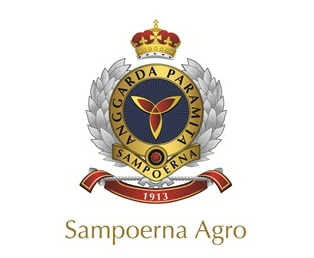
Graduate Trainee 2018
Syarat Umum
Syarat Khusus
Graduate Trainee 2018
Kualifikasi untuk Graduate Trainee
• Sarjana atau Magister di jurusan apapun
IPK minimal:
~ Sarjana: 3.00
~ Master Degree: 3.30
• Maksimal 2 tahun pengalaman kerja
• Mereka yang akan lulus pada 2018 dipersilahkan melamar
• Fasih berbahasa Inggris, baik lisan maupun tulisan
• Pemecahan masalah yang kuat, komunikasi yang solid dan kemampuan interpersonal serta terbukti kepemimpinan dan kecerdasan organisasi
• Adaptif dan memiliki pemikiran analitis yang baik
• Yakin untuk berinteraksi dengan tim manajemen senior
• Terbuka untuk penempatan di seluruh wilayah di Indonesia
Lowongan Kerja PT HM Sampoerna Tbk - anda dapat mendaftar melalui website resminya lihat disini : PENDAFTARAN Sampoerna Career
Keterampilan/ Skill
Deskripsi Perusahaan
First field planting within the Sampoerna Agro Group was through PT Aek Tarum in 1989. It was followed by the establishment of PT Sampoerna Agro Tbk (previously named as PT Selapan Jaya) in 1993 to operate oil palm plantations in South Sumatra region.
Currently, PT Sampoerna Agro Tbk together with its subsidiary companies (“the Company”), is one of the leading producers of palm oil and palm kernel in Indonesia. The Company is also one of the few oil palm seed producers in Indonesia that was licensed by the Indonesian Ministry of Agriculture to produce and sell oil palm seeds, under the brand name DxP Sriwijaya to third parties through one of the Company’s subsidiaries, PT Binasawit Makmur (“BSM”). BSM produces and sells six varieties of high quality oil palm seeds. DxP Sriwijaya is the result of cross breeding selective genetic materials with diverse genetic origins and is derived from 225 set of dura families and 50 pisifera families.
In 2015, the Company has successfully released six new variants of superior strain of palm seeds through a more advanced semi-clonal technology. Benefits of the new semi clone seeds include a higher level of uniformity and better yields even relative to the existing superior DxP Sriwijaya varieties. The superior seeds are already available for purchase with a brand name DxP Sriwijaya Semi Klon 1 to 6.
As of year-end 2014, Sampoerna Agro actively manages a total of 127.787 hectares of oil palm plantation, consist of 87.401 hectares of planted area located in South Sumatra province and the other 40.386 hectares is located in Central and West Kalimantan provinces. From total plantation areal, there are 101.586 hectares of matured palms and 26.201 hectares of immature palms.
Within the same period, the Company manages nucleus estates of about 77.098 hectares while plasma and kemitraan estates under guidance are about 50.688 hectares. The Company has seven POMs, of which five are situated in Sumatra and two in Kalimantan. The POMs in Sumatra have a total capacity to produce 380 tons of fresh fruit bunches (“FFB”) per hour, whereas the POMs in Kalimantan have a capacity to produce 105 tons of FFB per hour.
To pursuit its vision of becoming one of the leading agribusiness companies that is accountable in Indonesia, Sampoerna Agro attempts to strike a balanced mix between growth and sustainability that focuses on four basic fundamentals: people, planet, product, and profit. Along with the vision, The Company maintains its strategy of rapid growth through diversifying plantation portfolio into other crops that are able to produce higher value-added downstream products.
Diversification initiative into sago, was made through an acquisition of a 21,620 hectare land concession in Selat Panjang of Riau Province. The Company has started producing high quality sago starch under the brand name Prima Starch, which is distributed to domestic as well as international markets.
Company's diversification is becoming increasingly widespread with an acquisition of rubber plantations by the year of 2012 which covers 100,000 hectares in West Kalimanta